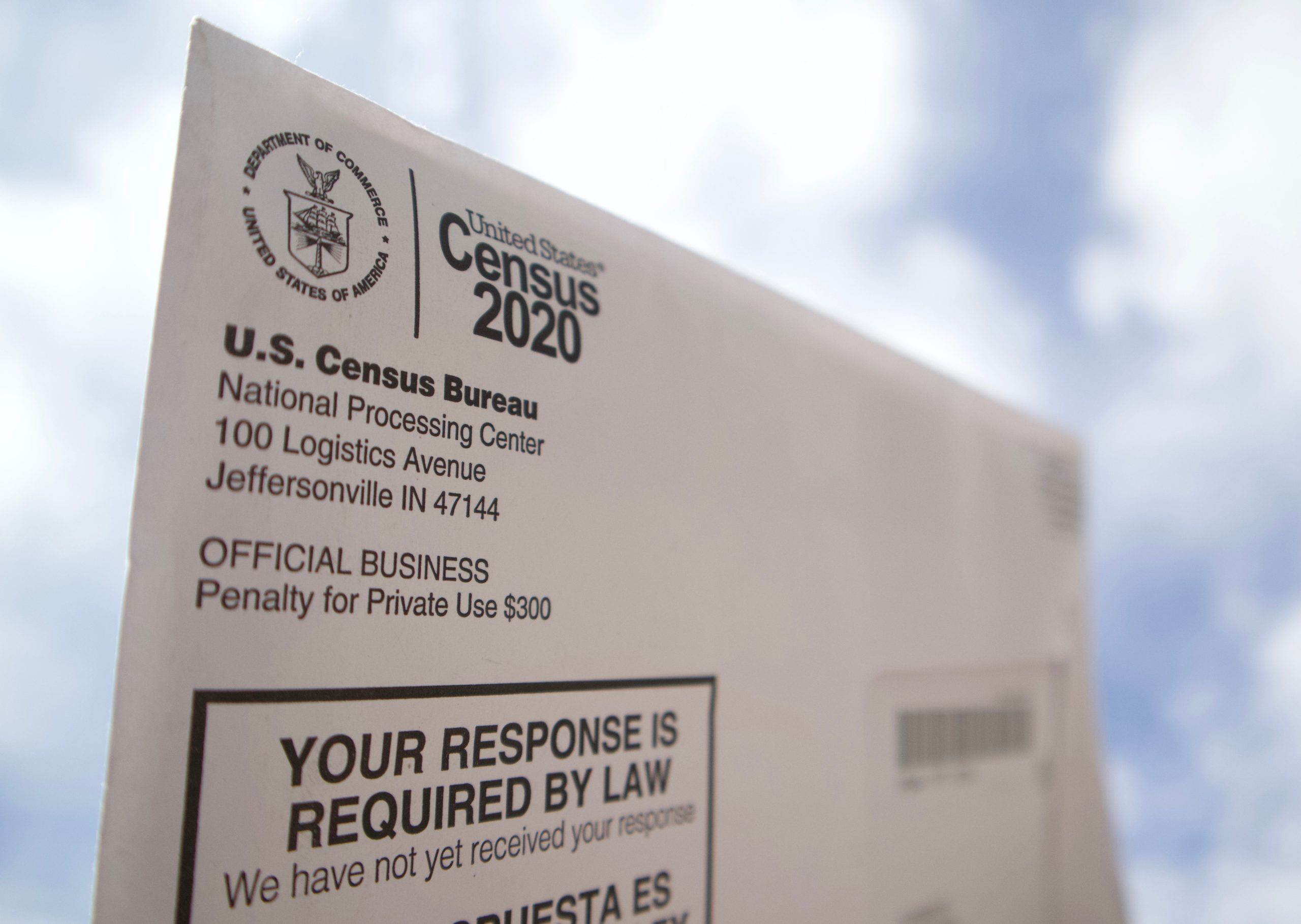
A mailed envelope containing the 2020 Census. (Robert Tann/CU Independent)
As the global coronavirus pandemic leaves many wondering how they can help from home, local leaders in Boulder are reminding college students it only takes 10 minutes to impact the next 10 years.
The 2020 Census, an initiative undertaken once every decade to count every living person in the United States and its five territories, is currently ongoing. But as the deadline to submit approaches, some worry a lack of responses could jeopardize opportunities for the future.
“Almost everything that happens in most people’s daily lives is affected by the census,” said Ciera Dykstra, a CU Boulder junior and the census engagement chair for the University of Colorado Student Government.
For students, the census has a major impact on university funding and support. Depending on the number of responses in a certain area and the demographics of those responses, the federal government will decide how it allocates grants and other tuition assistance programs.
With the coronavirus pandemic forcing CU Boulder students online, some worry out-of-state students who’ve been forced to return home won’t count themselves as living in Boulder, thereby affecting how the federal and state government views the university in terms of financial assistance.
“It is not the only reason that we have very high in-state tuition, but it’s one of the reasons we are one of the more expensive public universities,” Dykstra said. “We are receiving less financial aid because of a lack of students showing up for the census.”
According to CU Boulder Assistant Vice Chancellor for Data Science and Strategy Seth Spielman, it’s possible CU students may choose to mark a different residency for themselves because of the shift away from campus due to COVID-19.
“If the 30,000 students who attend CU and historically would have answered that they live on campus, that they live in Boulder, answer that they live somewhere else now, I think that would have real implications for the city and the institution for the next ten years,” Spielman said.
The last time the census was conducted in 2010, most areas surrounding the university had a self-response rate below 60%. As of April 17, CU Boulder’s main campus, where most freshman students would mark their residencies, has a self-response rate of 56.9%. University Hill, home to many off-campus students, has a self-response rate of 38.6%, according to census data.
“Almost everything that happens in most people’s daily lives is affected by the census.”
Ciera Dykstra, CU Boulder junior and CUSG census engagement chair
Along with university support, census turnout also has an effect on congressional representation.
“You can gain or lose representation in the house based on the count,” Spielman said. “Then they have to figure out where to put the boundaries within the state. That’s where gerrymandering comes into play.”
Dykstra said if enough people claim Colorado as their primary place of residence as of April 1 it could result in expanded representation for the state.
“The reason why it’s really important for Colorado this year is we actually stand to gain another representative, which would be really huge for our representation in the House of Representatives,” said Dykstra.
In an attempt to protect all communities, the census allows both citizens and non-citizens to participate.
“If we have a large, for example, Latinx population, but they are not being counted because it might be a population that has more immigrants … that means that there are communities that are receiving resources that should be supporting them,” Dykstra said.
For decades, the process has always been a battle when it comes to accuracy and a failure to correctly represent a community’s population can lead to less funding at the state and federal level.
“The census has historically been something where marginalized people get oppressed in the process, and then when they are not counted for, those communities aren’t receiving the funding and they’re not receiving the representation they deserve,” Dykstra said.
Dykstra said the census is crucial for everyday lives and that the answers that are recorded now will affect the next 10 years.
“This is the foundation of how your lives are built, everything from your public transportation you are using, any funding that you are receiving from the school …” Dykstra said. “Everything that you have in your life is because someone 10 years ago filled out a census and is funding your community now, so pay it forward.”
Students can fill out the 2020 Census here. For more information about the census, visit the university’s webpage here.
Contact CU Independent Staff Writer Dawson Drew at dawson.drew@colorado.edu.
